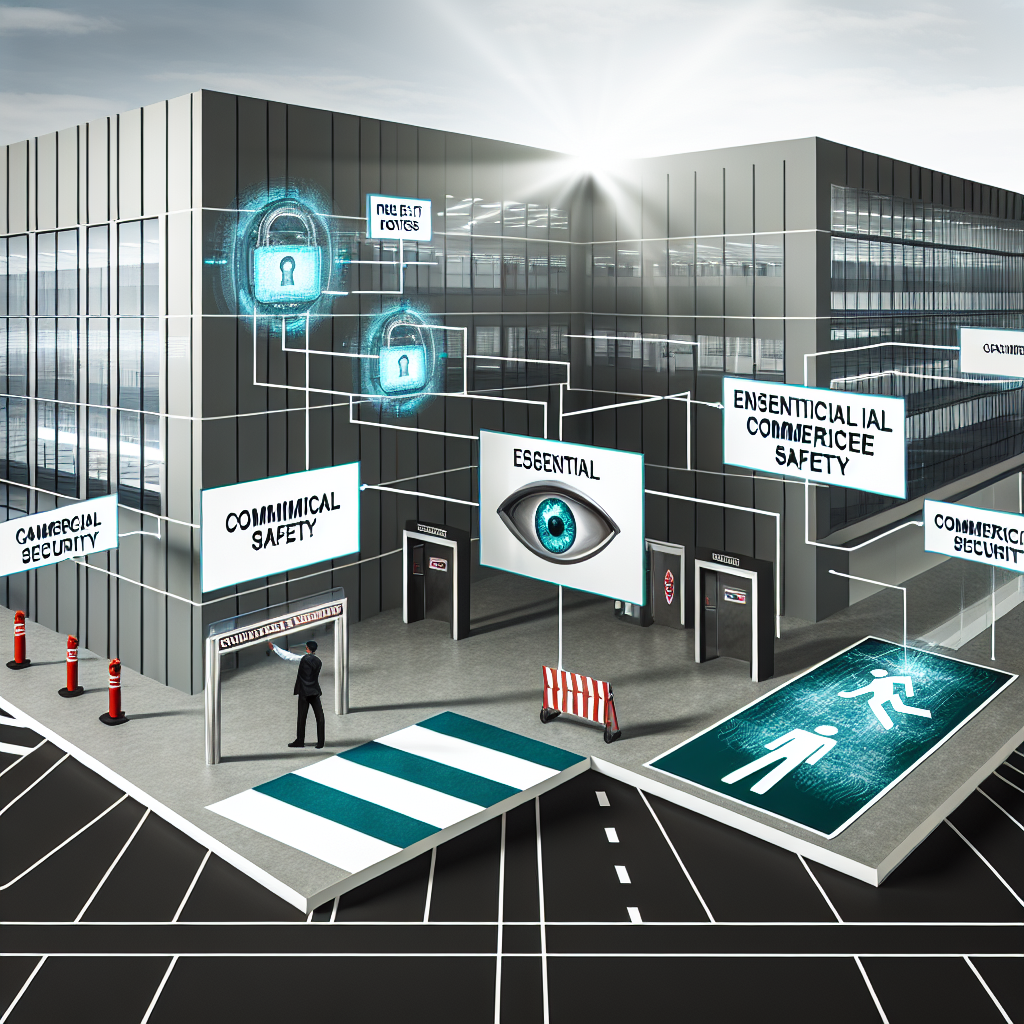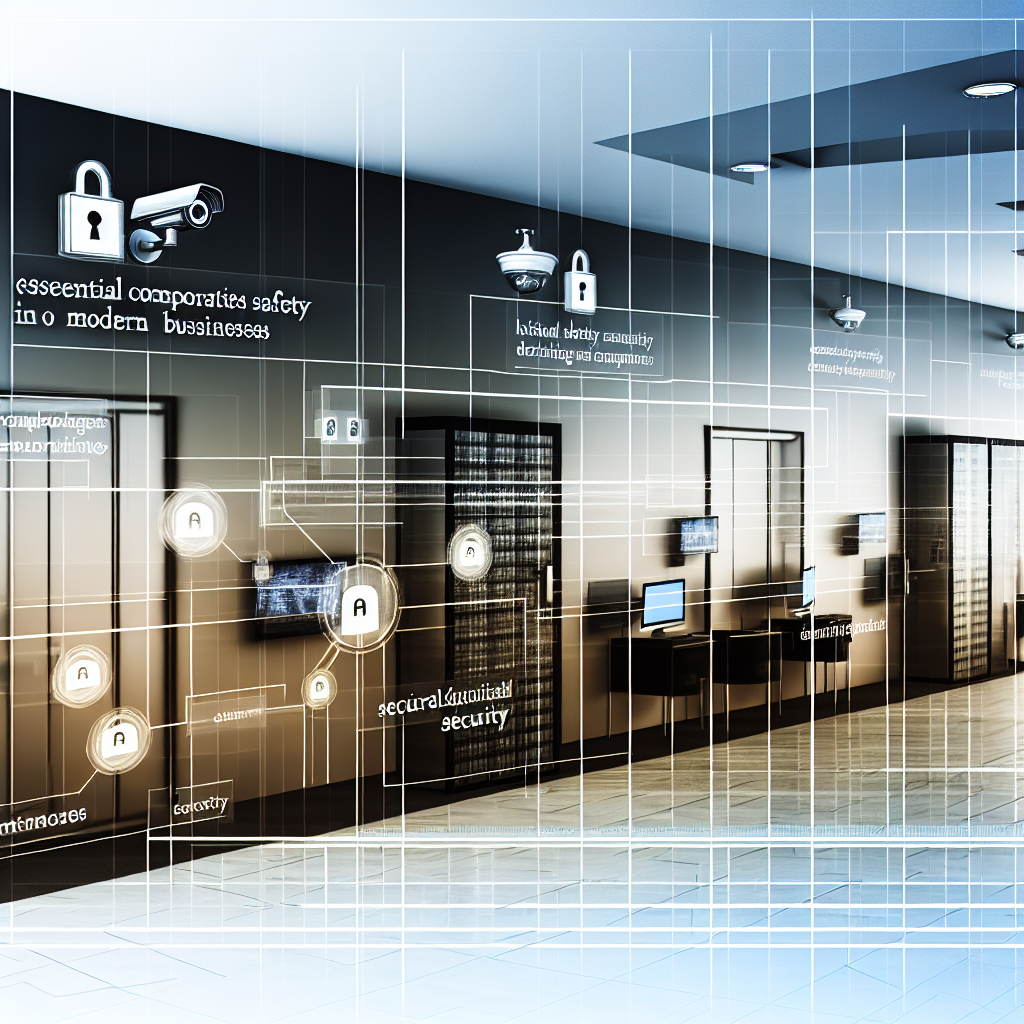“Protect your business and employees with essential commercial security strategies. From access management to overall safety, our team at American Security Products is here to help. Contact us today for a free quote and take the first step towards a secure and successful business. Click here to get started: https://www.americanspd.com/free-quote“
The Importance of Regular Security Audits for Commercial Businesses
In today’s fast-paced and ever-changing business world, security is a top priority for companies of all sizes. With the rise of cyber threats, physical break-ins, and other security risks, it is crucial for businesses to have a comprehensive security strategy in place. One essential aspect of this strategy is regular security audits.
A security audit is a systematic evaluation of a company’s security measures, policies, and procedures. It involves identifying potential vulnerabilities and weaknesses in the security system and making recommendations for improvement. While some businesses may view security audits as an unnecessary expense, they are, in fact, a crucial step in ensuring the safety and protection of a company’s assets, employees, and customers.
One of the primary reasons why regular security audits are essential for commercial businesses is that they help identify potential security risks. As businesses grow and evolve, their security needs also change. What may have been an effective security measure a few years ago may no longer be sufficient today. A security audit can help identify any gaps or weaknesses in the current security system and provide recommendations for improvement.
Moreover, security audits can also help businesses stay compliant with industry regulations and standards. Many industries, such as healthcare and finance, have strict regulations regarding security and data protection. Regular security audits can ensure that a company is meeting these requirements and avoiding any potential legal consequences.
Another crucial aspect of security audits is that they can help prevent security breaches. With the increasing number of cyber threats and data breaches, businesses must stay vigilant and proactive in their security measures. A security audit can identify any potential vulnerabilities in a company’s network, systems, or processes and provide recommendations for strengthening them. This can help prevent costly and damaging security breaches that can harm a company’s reputation and bottom line.
Furthermore, regular security audits can also help businesses save money in the long run. While some may view security audits as an unnecessary expense, they can actually save businesses money by identifying potential risks and vulnerabilities before they turn into costly security breaches. Additionally, implementing the recommended security measures can also help prevent financial losses due to theft, fraud, or other security incidents.
Aside from identifying potential risks and vulnerabilities, security audits can also help improve the overall security culture within a company. By involving employees in the audit process and educating them on security best practices, businesses can create a more security-conscious workforce. This can help prevent insider threats and ensure that employees are aware of their role in maintaining the company’s security.
In conclusion, regular security audits are an essential aspect of any commercial business’s security strategy. They help identify potential risks, ensure compliance with industry regulations, prevent security breaches, save money, and improve the overall security culture within a company. With the ever-evolving security landscape, businesses must prioritize regular security audits to stay ahead of potential threats and protect their assets, employees, and customers.
Maximizing Corporate Safety with Access Management Systems

In today’s fast-paced and ever-changing business world, corporate safety and access management have become crucial aspects for any successful organization. With the rise of technology and the increasing threat of cyber attacks, it is essential for businesses to have a robust security strategy in place to protect their assets, employees, and sensitive information. This is where access management systems come into play.
Access management systems are designed to control and monitor access to a company’s physical and digital resources. They provide a comprehensive solution for managing employee access, visitor management, and overall security of the premises. These systems use a combination of hardware and software components to ensure that only authorized individuals have access to specific areas or information within the organization.
One of the primary benefits of access management systems is the ability to customize access levels for different employees. This means that not all employees will have the same level of access to all areas and information within the company. For example, a receptionist may only have access to the lobby and visitor management system, while a senior executive may have access to all areas and sensitive information. This level of customization ensures that only authorized individuals have access to critical resources, reducing the risk of internal threats.
Moreover, access management systems also provide a record of who has accessed what and when. This feature is particularly useful in case of a security breach or an incident. The system can track and record all access attempts, providing valuable information for investigations and audits. This not only helps in identifying potential security threats but also serves as a deterrent for employees who may consider misusing their access privileges.
Another essential aspect of access management systems is their ability to integrate with other security systems. For instance, they can be integrated with surveillance cameras, alarms, and biometric systems to provide a comprehensive security solution. This integration allows for real-time monitoring and alerts in case of any suspicious activity, ensuring a swift response to potential threats.
In addition to physical security, access management systems also play a crucial role in protecting digital assets. With the increasing use of cloud-based systems and remote work, it is essential to have a robust system in place to manage access to sensitive information. Access management systems use multi-factor authentication, such as passwords, biometrics, and security tokens, to ensure that only authorized individuals can access digital resources. This significantly reduces the risk of data breaches and cyber attacks, which can have severe consequences for a business.
Furthermore, access management systems also offer convenience and efficiency for businesses. With a centralized system in place, employees no longer need to carry multiple keys or access cards for different areas. This not only saves time but also reduces the risk of lost or stolen access cards. Additionally, these systems can be remotely managed, allowing for quick and easy access changes or revocations in case of employee turnover or security concerns.
In conclusion, access management systems are an essential component of any modern business’s security strategy. They provide a comprehensive solution for managing physical and digital access, ensuring the safety of employees, assets, and sensitive information. With the ability to customize access levels, track access attempts, and integrate with other security systems, these systems offer a robust and efficient solution for corporate safety and access management. As businesses continue to evolve and adapt to new technologies, it is crucial to prioritize security and invest in access management systems to stay ahead of potential threats.
Choosing the Right Alarm System for Enhanced Business Protection
In today’s fast-paced and ever-changing business world, security is a top priority for companies of all sizes. With the rise of cyber attacks, theft, and other security threats, it is crucial for businesses to have a comprehensive security strategy in place. One essential aspect of this strategy is choosing the right alarm system for enhanced business protection.
When it comes to commercial security, there are various alarm systems available in the market. However, not all alarm systems are created equal, and choosing the right one for your business can be a daunting task. To help you make an informed decision, we have compiled a list of essential factors to consider when selecting an alarm system for your business.
First and foremost, it is crucial to assess your business’s specific security needs. Every business is unique, and what works for one may not necessarily work for another. Therefore, it is essential to conduct a thorough risk assessment to identify potential vulnerabilities and determine the level of security required. This will help you narrow down your options and choose an alarm system that best suits your business’s needs.
Another crucial factor to consider is the type of alarm system. There are two main types of alarm systems: wired and wireless. Wired alarm systems are hardwired into your business’s electrical system, while wireless systems use radio frequency to communicate with the control panel. Both types have their advantages and disadvantages, and the choice ultimately depends on your business’s layout and needs.
Next, consider the features and capabilities of the alarm system. Modern alarm systems come with a wide range of features, such as motion sensors, glass break detectors, and remote access. These features can enhance the overall security of your business and provide you with peace of mind. However, it is essential to carefully evaluate which features are necessary for your business and which ones you can do without to avoid overspending.
It is also crucial to consider the reliability and responsiveness of the alarm system. In case of an emergency, you want an alarm system that will immediately alert the authorities and provide you with real-time updates. Look for alarm systems with a proven track record of reliability and quick response times to ensure the safety of your business and employees.
Another essential aspect to consider is the integration capabilities of the alarm system. In today’s digital age, it is crucial for businesses to have a seamless integration of all their security systems. This includes integrating the alarm system with other security measures such as CCTV cameras, access control systems, and fire alarms. This integration allows for a more comprehensive and efficient security system, making it easier to monitor and manage all aspects of your business’s security.
Lastly, consider the cost and maintenance of the alarm system. While it may be tempting to opt for a cheaper option, it is essential to remember that the security of your business is not an area to cut corners. Invest in a high-quality alarm system that meets your business’s needs and provides reliable protection. Additionally, consider the maintenance costs and whether the alarm system requires regular servicing or battery replacements.
In conclusion, choosing the right alarm system for your business is a crucial step in enhancing your overall security strategy. By carefully assessing your business’s specific needs, considering the type, features, reliability, integration capabilities, and cost of the alarm system, you can make an informed decision that will provide your business with the necessary protection. Remember, investing in the right alarm system is an investment in the safety and security of your business.


